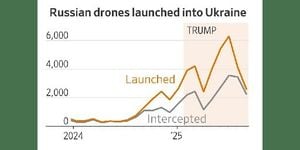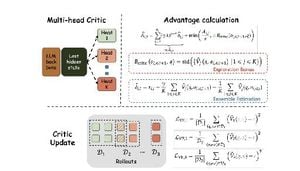In a significant legal victory for arcade game champion Billy Mitchell, a judge has ruled that YouTuber Karl Jobst defamed him and ordered Jobst to pay $350,000 in damages. The Brisbane District Court’s decision, delivered on April 1, 2025, marks a pivotal moment in a legal battle that has captivated the gaming community.
Billy Mitchell, 59, known for his world records in classic arcade games like Donkey Kong and Pac-Man, first gained fame in the 1980s. His legal woes began when Jobst, a Queensland-based YouTuber, posted a video in May 2021 that made serious allegations against Mitchell. In the video, which garnered over 500,000 views, Jobst claimed that Mitchell's prior lawsuit against fellow YouTuber Benjamin Smith, known as Apollo Legend, had left Smith "deeply in debt" and implied that Mitchell's actions contributed to Smith's tragic suicide in December 2020.
Judge Ken Barlow, presiding over the case, found that Jobst acted with "reckless disregard for the truth" and described his campaign against Mitchell as a "vindictive crusade." The judge noted that Jobst seemed determined to portray himself as a crusader against Mitchell, stating, "Clearly he wanted to be the knight who slayed the Mitchell dragon." However, the judge concluded that Jobst's lance was not as strong as he believed.
In his ruling, Judge Barlow awarded Mitchell $300,000 in non-economic damages and an additional $50,000 in aggravated damages. He also ordered Jobst to pay $34,668 in interest, dating back to the first publication of his video, along with Mitchell's legal costs. This decision highlights the serious consequences of defamatory statements, especially in the age of social media where misinformation can spread rapidly.
Mitchell, who was not present in court for the judgment, expressed his satisfaction with the ruling through a post on X, stating, "Nothing like the smell of victory." Approximately 5,000 viewers tuned in to watch the verdict unfold via a live stream on YouTube, underscoring the high level of interest in the case.
Jobst's original video not only accused Mitchell of cheating but also linked the legal action against him to the mental distress experienced by Apollo Legend. The judge highlighted that Jobst's assertions were based on a "fallacy," specifically the erroneous claim that Apollo Legend had paid a large sum to Mitchell as part of a settlement. This unfounded allegation contributed to the judge's determination that Jobst's actions had caused substantial damage to Mitchell's reputation.
The court heard that the allegations against Mitchell stemmed from a 2017 incident where he was accused of cheating by using emulation software to achieve his world record scores. Following an investigation by Twin Galaxies, Mitchell's scores were removed, and he was banned from their competitions. Additionally, the Guinness World Records disqualified him as a record holder after the Twin Galaxies decision.
Despite the serious nature of the allegations, Judge Barlow stated that it was not his role to determine the truth of the cheating claims against Mitchell. He emphasized that Jobst had acted recklessly by failing to verify the facts before publishing his video. In his judgment, Barlow noted that Jobst made five defamatory imputations about Mitchell, including the implication that Mitchell had "hounded Apollo Legend to death" with his legal actions.
Jobst, who is known for creating content about gaming records and controversies, reacted to the verdict by addressing his followers on X. He acknowledged the gravity of the situation, stating, "I lost. The judge found Billy to be a credible witness and believed his entire testimony. From that point on, unfortunately, there was really nothing that could have saved me. I will now consider my options." He expressed gratitude to his supporters and vowed to work hard to repay the damages awarded to Mitchell.
In the aftermath of the ruling, the gaming community has been buzzing with opinions and reactions. Many commentators have expressed concern about the implications of the case for online content creators and the responsibility they bear in ensuring the accuracy of their claims. The case serves as a cautionary tale about the potential legal repercussions of spreading misinformation, especially when it involves serious allegations that can affect a person's reputation and livelihood.
Mitchell's legal battles are not new; he previously sued Twin Galaxies in the United States, a case that settled in January 2024. As part of that settlement, Twin Galaxies issued a statement acknowledging that Mitchell had provided expert testimony that his gameplay could be consistent with play on original arcade hardware, should the hardware be malfunctioning. Following this, Mitchell's Guinness World Records were reinstated in June 2020, further solidifying his status in the gaming world.
As the dust settles from this latest legal showdown, the focus now shifts to the broader implications for digital content creators. With the rise of platforms like YouTube and the increasing influence of social media, the responsibility to fact-check and present accurate information has never been more critical. This case may well set a precedent for how similar disputes are handled in the future, as the line between commentary and defamation continues to blur.
In conclusion, the ruling against Karl Jobst serves as a reminder of the power of words and the potential consequences of unchecked claims in the digital age. As the gaming community reflects on the events surrounding this case, it remains to be seen how it will influence the behavior of content creators moving forward.






